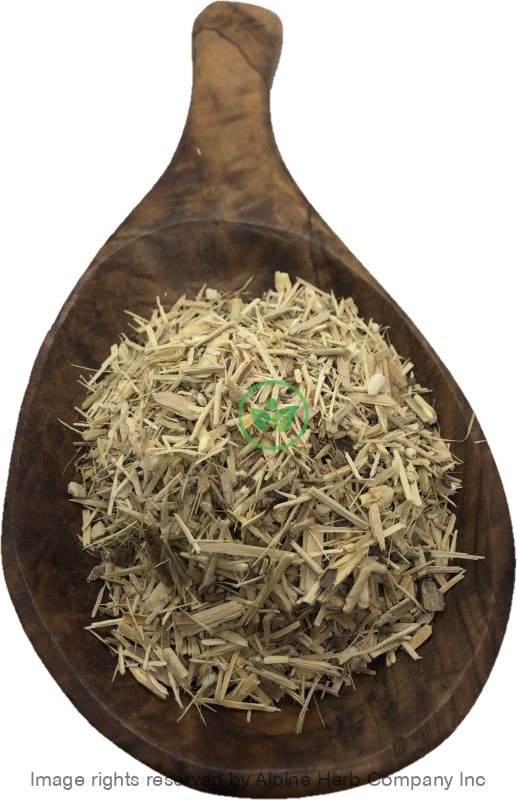Ginseng Siberian Root Cut Alpine Herb Company Inc.
$ 8,99 $ 5,39
Botanical Name: Eleutherococcus senticosus
Common Name:
- English: Siberian Ginseng,
- Also, known as: Buisson du diable, chi wu cha, ciwujia, devil’s bush, devil’s shrub, eleuthero, eleutherococc, eleutherococoque, eleutherokokk koljucij, ezoukogi, gashi ohgap, prickly eleutherococcus, shigoka, Siberian ginseng, Stachelkraftwurz, Stachelpanax, taiga root, Taigawurzel, thorny ginseng, thorny Russian pepperbush, touch-me-not, tsu wu cha, wild pepper, wu cha sang, wu cha seng, wujiapi,hongmao-wujiapi, many prickle acanthopanax, pai wu cha pi, prickly eleutherococc, Acanthopanax senticosus, Devil’s Shrub, Eleuthero, Hedera senticosa Rupr & Maxim, Touch-Me-Not, Wild Pepper
Origin: China
Harvested: Cultivated
Parts Used: Root
General Information:
Eleutherococcus senticosus roots are cylindrical. The roots are straight, branched and 0.5 to 1 cm in diameter. The appearance of the roots are dark brown, and the surface is smooth with bark. Roots are 4 to 5 cm thick. The color of the roots is pale brown, wrinkled. There are roots from the unrelated plants call Periploca sepium in English known as “Chinese Silk Vine” that have been used as substitutes for Eleutherococcus senticosus.
How to use:
Decoctions are suitable for roots, barks, large seeds & berries, and other dense material. The simple way to make decoction is, in a saucepan, add 1 tablespoon of dried herbs to 1 cup of water. Bring the water to boil, reduce heat and simmer for 30-60 minutes. Strain and squeeze out as much as liquid as possible and enjoy!
Tips:
- You can sweeten your herbal decoctions with bit of honey, natural fruit juice, stevia leaves powder and or licorice root powder.
Precautions:
You should consult with a qualified healthcare practitioner before using any herbal products, particularly if you are pregnant, nursing, or on any medications.
All information on this website is for educational purposes ONLY.
This information has not been evaluated by Health Canada.
This information is not intended to diagnose, treat, cure, or prevent any disease.
| Unit Size | 100g, 200g, 400g, 1kg |
|---|
Prompt shipping and expert packing
Thanks to our longstanding association with UPS FedEx DHL as well as other leading global carriers, we can offer a variety shipping options. Our warehouse staff is highly trained and will be able to pack your goods in accordance with our precise and exact specifications. Your items will go through an exhaustive examination before they will be securely packaged before being delivered. We ship to hundreds of thousands of customers daily in different countries. This is a sign of our determination to become the largest online retailer worldwide. Warehouses and distribution centers are located throughout Europe as well as in the USA.
Note that orders containing multiple items are processed according to the particular item.
We will thoroughly inspect all items ordered before shipping. Most orders are shipped within 48 hours. The delivery time will be between 3 and 7 working days.
Returns
The stock market is always changing. It's not entirely managed by us since we're involved with several entities, including the factory and the storage. Therefore, the actual inventory could fluctuate at any moment. Please be aware that it is possible that your order could be out of stock after you've placed your order.
Our policy lasts for 30 days. If it's been more than 30 days since the date you purchased your item We're sorry to say that we can't offer you a full exchange or refund.
You can only return a product if it is unused and still in the same state as when you received it. The item should be in the original packaging.


































